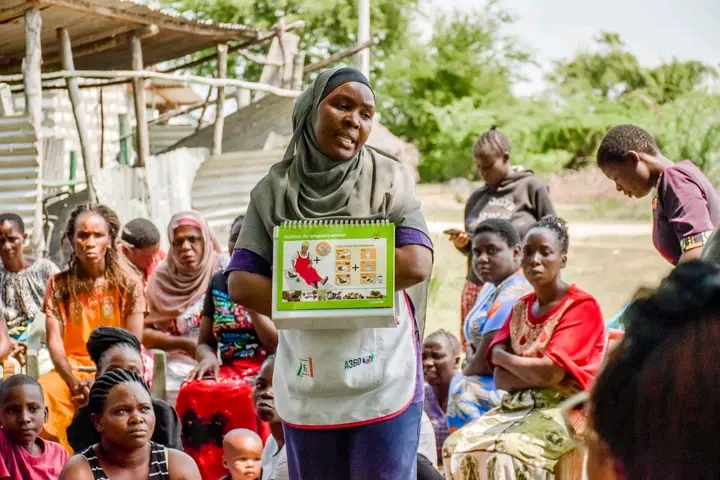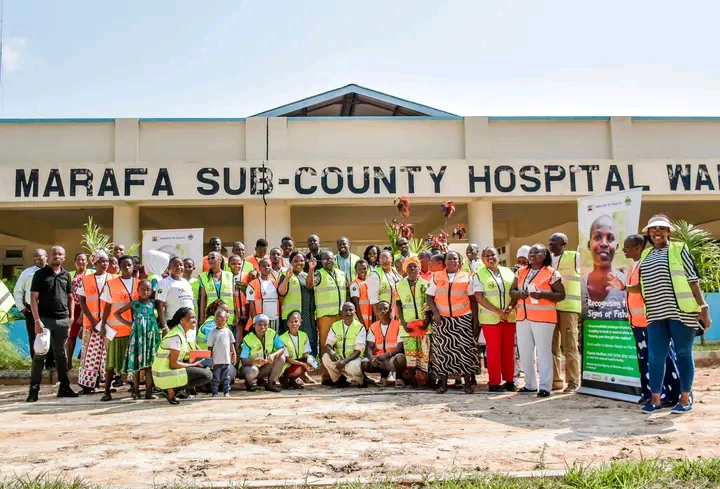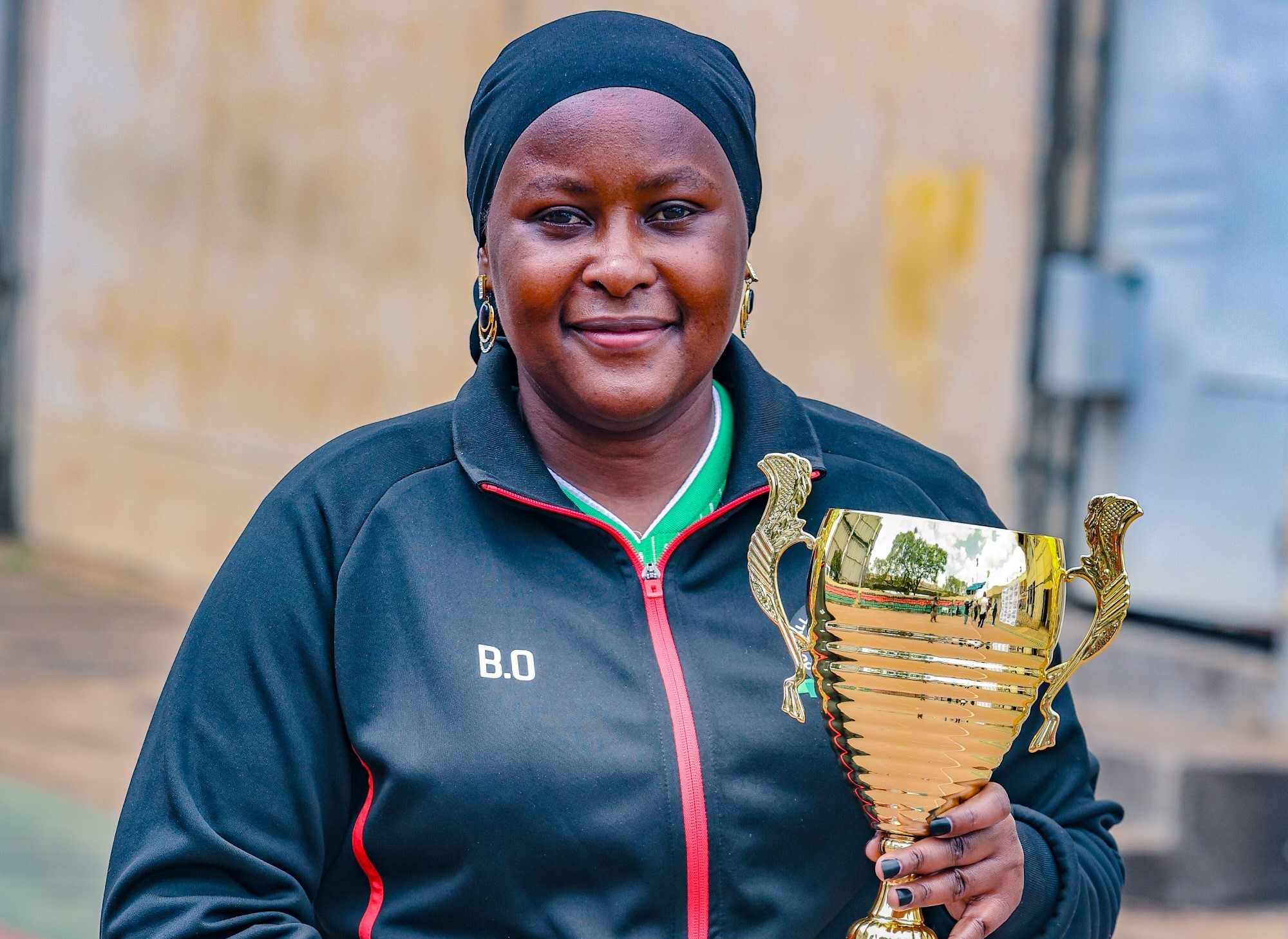Traditional Kilifi midwives now become chief advocates of hospital deliveries

Cultural practices like abdominal massage, which is linked to complications at birth and infant deaths, are still prevalent
For 25 years, Mize Juba, a 62-year-old traditional midwife from Mpirani Kilifi County, has been a cornerstone of maternal care in her community. However, her role is shifting as the county increasingly emphasises hospital deliveries over traditional practices.
Mize, a small, energetic woman with a piercing gaze, began her midwifery career at 30, following in the footsteps of her late grandmother, a respected village midwife.
"Every time I helped a woman deliver safely, I felt fulfilled, seeing the smiles that came with holding the baby for the first time. I was driven by the need to serve my community," Mize said when she spoke to The Eastleigh Voice.
Despite her deep-rooted experience, Mize lacks formal midwifery training. Her skills have been passed down from her grandmother.
Now, Mize has transitioned to advocating for hospital deliveries, recognising the evolving healthcare landscape.
"Midwives were crucial when villages had no health facilities. Today, we have health centres at the grassroots, making hospital deliveries safer and more accessible," she said.
Mize now serves as an agent, visiting around five pregnant women regularly to ensure they attend antenatal clinics and receive proper care. She is among the many traditional midwives in the region who have been trained to advocate for hospital deliveries.
"Instead of helping women to deliver, I now encourage them to deliver in health facilities under the care of skilled health workers," she said.
She revealed that she chose to abandon the trade after sensitisation campaigns by the county government on the impact of home deliveries.
"We can deliver when it is a smooth birth. But when a complication arises then we cannot save the baby and the mother, for instance when the baby is too big and cannot be born naturally or when the baby is not in the right position," explained Mize.
The midwife says after the sensitisation, she became aware of the risk she has been putting herself and her clients in.
"It is hard to maintain the required level of hygiene at home. Most of us never wore gloves, exposing ourselves to infectious diseases that can be transmitted through fluids," she said, adding that in the case of an HIV-positive mother, they have no way of protecting the infant from the disease.
 The Uzazi Salama Kilifi Programme stakeholders, including the Kilifi Department of Health, M-Pesa Foundation, and Amref Health Africa in Kenya, during a visit to Mjanaheri Dispensary and Marafa Sub-County Hospital on July 27, 2024, where they interacted with the beneficiaries of the programme. (Photo: Mishi Gongo)
The Uzazi Salama Kilifi Programme stakeholders, including the Kilifi Department of Health, M-Pesa Foundation, and Amref Health Africa in Kenya, during a visit to Mjanaheri Dispensary and Marafa Sub-County Hospital on July 27, 2024, where they interacted with the beneficiaries of the programme. (Photo: Mishi Gongo)
Mize said some women seek the services of traditional midwives for fear of facing the law. This is especially so in cases of early marriages where a man who marries a minor seeks the services of a traditional midwife instead of going to the hospital and risking being charged.
In her campaigns for safe hospital deliveries, Mize is assisted by Neema Mwajoto and Kwekwe Masha, both of whom suffered tragic outcomes from home births assisted by traditional midwives.
Neema’s 22-year-old daughter Sidi Mupa died shortly after delivering a child in Garashi, Kilifi County.
"She laboured for more than 12 hours and started complaining of a severe headache. Despite the light in the room, she said it was too dark. We rushed her to the hospital but it was too late. She had a seizure and passed away before the doctors could intervene," Neema told The Eastleigh Voice.
Doctors later attributed Sidi's death to eclampsia, a severe complication of high blood pressure, which could have been prevented with timely hospital delivery.
Kwekwe's experience was similarly harrowing. She developed a fistula due to prolonged labour and the absence of professional healthcare during delivery.
Their stories underscore the risks associated with traditional midwifery.
The 2022 Kenya Demographic and Health Survey reveals a maternal mortality ratio of 355 deaths per 100,000 live births annually, while neonatal deaths stand at 21 per 1000 live births.
Kilifi County Reproductive, Maternal, Child, and Adolescent Health Coordinator Kenneth Miriti said that unskilled home deliveries significantly contribute to maternal and infant deaths.
"Home deliveries by unskilled practitioners, including practices like uterine massage, are among the contributors to maternal and infant deaths. We lack exact numbers but are actively conducting awareness campaigns to encourage women to attend at least four antenatal clinics and deliver at hospitals," Miriti said.
He said despite medical advancements, challenges such as cultural practices like abdominal massage which are linked to complications and infant deaths persist.
Miriti said they have introduced ultrasound in health facilities to assure expectant women of the safety of their infants.
"Most women engage in uterine massage due to fear, and wanting to know the condition of their babies. The ultrasound has helped because now women can see their babies unlike before when we would just tell them without any proof," Miriti said.
He cautioned women against uterine massage saying the practice leads to infant deaths.
"When a pregnant woman is massaged, the placenta dislocates from the stomach which leads to bleeding and death of an infant, or the woman develops an intrauterine growth restriction where the baby does not grow as expected because his nutrient supply is cut," Miriti said.
Kilifi County has seen progress, with a recent survey indicating that 89 per cent of women now deliver in hospitals, a notable increase from previous years. This improvement reflects efforts to address maternal mortality rates.
A survey by the Kilifi County Hospital shows live births to be at 64-70 per cent, which is low compared to the World Health Organisation rate of 95 per cent per 287,000 lives.
Data from Kilifi County Hospital indicates that for every 100,000 births, there are 352 deaths and 21 infant deaths per 1,000 live births.
According to Miriti, Kilifi County has recorded a massive reduction in maternal deaths as a result of a high increase in the number of women delivering in hospitals. He attributed the reduction to the sensitisation programme organised by the county health department at the grassroots to ensure expectant mothers deliver in hospitals.
He said they have an open day for expectant mothers where women are sensitised on the importance of hospital deliveries.
The county also uses technology to remind women about their next hospital visit and also give them information on proper care during pregnancies and danger signs in pregnancy.
(This story was made possible with the support of the UZIMA-DS project, funded by the National Institutes of Health (NIH).)
Top Stories Today












































